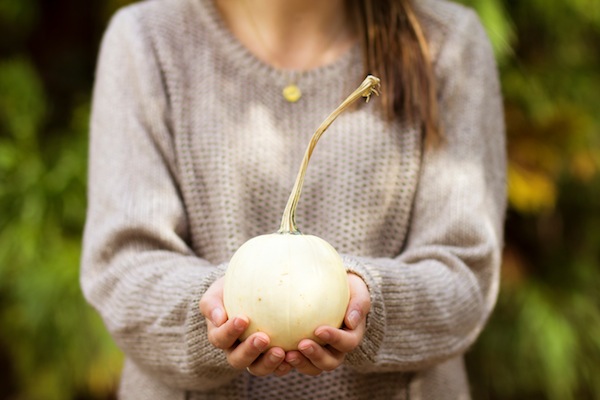Last week we were talking all things food and hormonal health. This week we’re looking specifically at what foods to eat during your Menstrual cycle. Paying specific attention to each phase of the cycle and how to optimise your diet throughout. Eating the right foods during your cycle helps to maintain homeostasis and create a healthier, happier you, this handy guide will tell you exactly what foods to eat throughout your menstrual cycle.
Menstruation
According to Traditional Chinese Medicine (TCM), our energy turns inward and goes through a cleansing process during this phase. We recommend taking rest during this time, using instead of tampons and engage in gentle exercise. Avoid stimulants like alcohol, tobacco, caffeine, and refined sugars during this phase. It’s also good practice to avoid hydrogenated fats and excess dairy as these products can make the body feel sluggish.
This is the time to have your comfort foods and easy to digest warming slow cooked foods like casseroles, stews, soups, bone broth wholegrains and root vegetables. Your body needs to create a healthy new uterine lining, so it is essential to get adequate amounts of slow releasing carbs, good fats and healthy proteins. TCM also places significant importance on eating foods according to the seasons.
Here’s what to eat during menstruation:
- TCM has a special focus on nourishing blood during this time. Replenish the lost iron by including grass-fed red meat, eggs, veggies like beets, greens (kale, spinach, bok choi, silverbeet), lentils and beans in your diet. Also add foods containing vitamin C to enhance iron absorption, these include broccoli, grapefruit, kiwi, leafy greens, melons, oranges, peppers and strawberries and lemons.
- Balance your blood sugar levels by eating healthy carbs, don’t cut our carbohydrates all together, as it can lower your serotonin levels and leave you feeling depressed.
- Consume your cruciferous vegetables to help metabolize and eliminate excess estrogen.
- Since the pH of blood is slightly alkaline, it is by alkalizing your body, you may be able to rebalance your hormones. Apple cider vinegar with a small amount of raw honey can alkalize the system and help with digestion. Garlic, ginger and turmeric are antibacterial, anti-fungal, anti-inflammatory, and highly alkalizing. TCM also believes ginger helps keep your body warm and aid digestion.
Follicular phase
Think of this phase as the pillar of your menstrual cycle. During this phase your endometrial lining in your uterus builds and you grow what is called a dominant follicle. This is all thanks to a hormone called the Follicle Stimulating Hormone (FSH), which is produced in your brain and estrogen produced by the ovaries.
Here’s what to eat during the follicular phase:
- It’s essential for your diet to include generous amounts of protein, fat, folic acid, and vitamin B12, which are essential for building blood and yin, this may include beans, fish, eggs and meat. Protein forms the building blocks to regenerate the endometrial lining and grow healthy follicles.
- Cooked leafy greens also help to re-mineralize the body after bleeding.
- Other food choices that are beneficial during this phase include nuts and seeds, especially flax – to help your follicles and black sesame seeds; sweet fruits: especially berries such as, goji berries, raspberries, blackberries, avocado, dates, figs, and apricots (which are high in copper); sweet vegetables such as beets, carrots, sweet potatoes, whole-grains such as oats, quinoa, buckwheat, oats, brown rice; legumes like black beans and kidney beans.
- To boost your iron lots of leafy greens and spinach.
Ovulation
This is everyone’s favourite time of the month – for those trying to conceive. Ovulation is THE BEST time to turn up the heat because it’s when you’re most fertile. Remember that lone, mature follicle? It will release an egg around about now, and that little egg will travel down your fallopian tube into your uterus.
The journey starts around 24 hours after your brain begins churning out a little something called the Lutenising Hormone (LH). This surge causes the mature follicle to bulge out from the surface of the ovary and burst (without any pain!) and release an egg. This usually happens on day 14 of your cycle. TCM focuses on nourishing the Kidneys during this time with warming foods that support digestion and strengthen the kidneys.
Here’s what to eat during ovulation:
- Warm and spicy foods such as cloves, cumin, cardamom, cayenne and ginger, and cinnamon are very beneficial during this stage.
- To maintain hormonal balance eat several small meals throughout the day to stabilize your blood sugar levels.
- To keep the uterus warm and expel cold from the body, adding warming foods such as rice, oatmeal, parsnips, onion family (chives, onion, scallion, and leek) quinona, chicken and lamb are also good choices.
- So during this phase, much like menstruation, you should try to limit raw fruits and vegetables, cold and frozen foods.
- For those trying to conceive consuming organic pineapple- particularly the core can assist with implantation
Luteal phase
After releasing the egg, the ruptured follicle develops into a fancy structure called the corpus luteum (an endocrine body), which secretes the hormone progesterone. Progesterone causes the endometrium (the lining in your uterus) to get even thicker and supports a possible pregnancy.
During this phase we want to support, nourish and nurture our hormones.
Here’s what to eat during the luteal phase:
- It is especially important not to give into sugar cravings during this phase. Eating slow-release complex carbohydrates will provide adequate nutrition for more energy, less cravings and less slumps after meals.
- Keep your body hydrate and consume at least 8 glasses of filtered water.
- Essential fatty acids are also helpful to balance some of the hormones in order to manage the undesirable premenstrual symptoms. These can be found in flaxseeds, chia seeds, hempseeds, sesame seeds, and pumpkin seeds.
- Minerals are essential to prevent and manage any premenstrual symptoms. Magnesium aids hormonal and blood sugar abnormalities and boosts progesterone levels. It is found in dark leafy greens, nuts, seeds, fish, beans, whole grains, avocados and bananas. Zinc is found in spinach, pumpkin seeds, oysters, grass fed red meat and mushrooms, and is useful in managing skin breakouts.
- Bone Broth is high in essential fats and should be consumed daily to support embryo development and potential implantation.
- Studies on caffeine and fertility are inconclusive, however caffeine is known to decrease blood flow to the uterus. Caffeine can also increase anxiety and stress levels. Too much caffeine may increase the risk of clotting and miscarriage.
- Avoid Alcohol: Clinical research suggests that alcohol intake negatively impacts IVF success, is associated with a longer time to conception and an increased miscarriage risk, and can cause acute drops in sperm count.
Give this guide a try during your cycle this month and see how it makes you feel. If you feel that you need a little more nutritional support during your cycle check out our Fertility Medicinal Tea Range for added herbal support.

